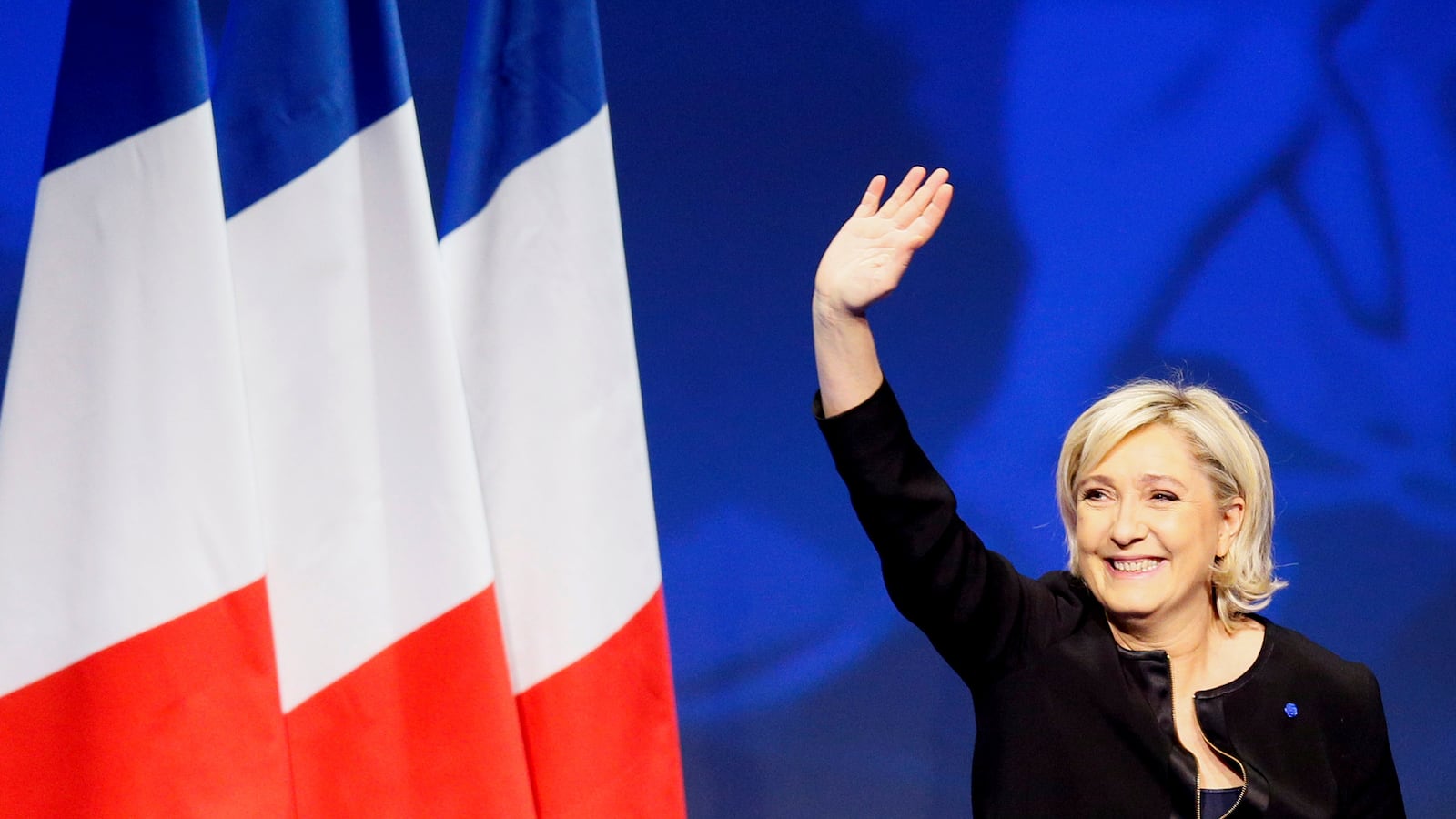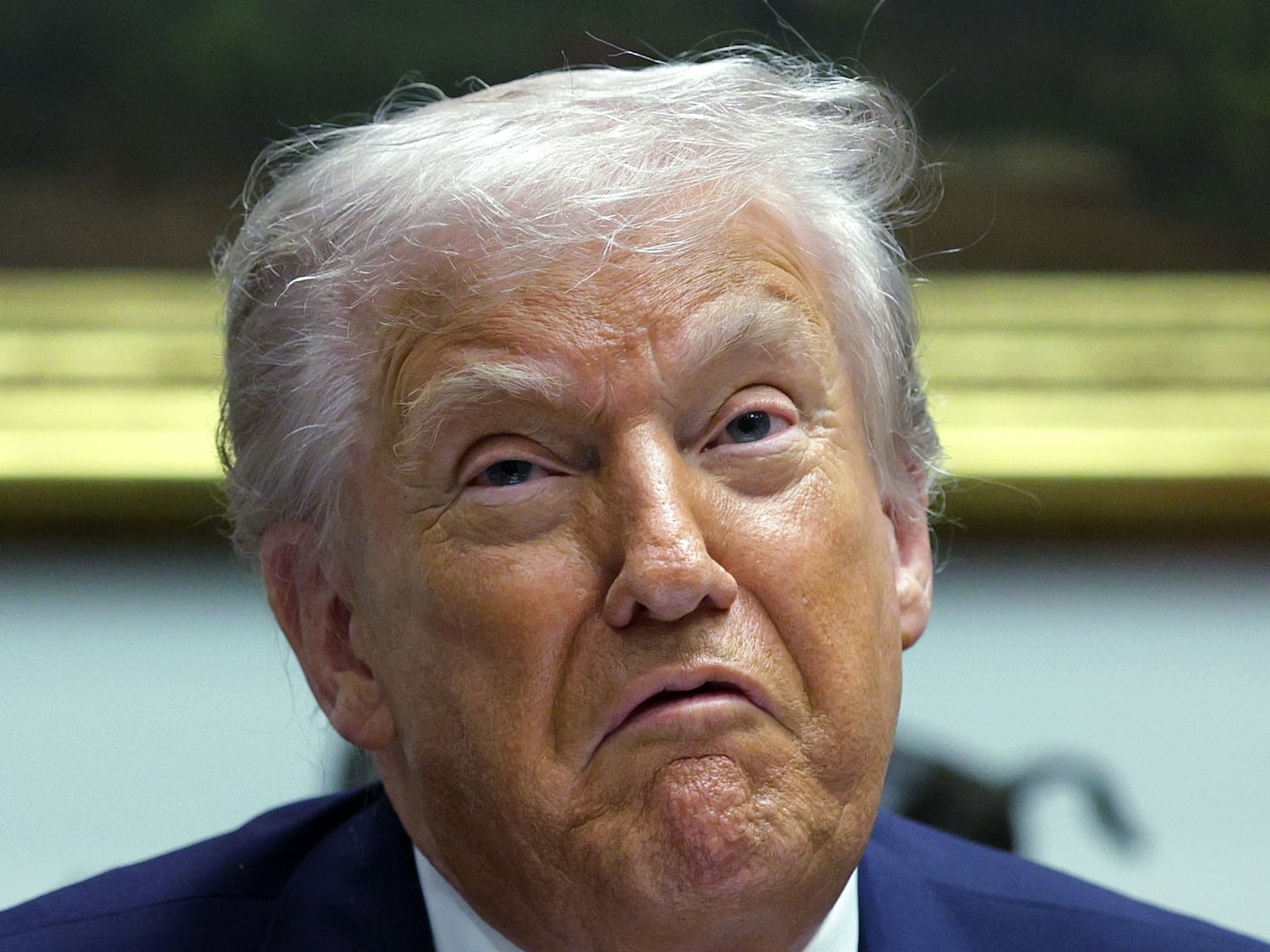PARIS—Minutes before center-right French presidential candidate François Fillon addressed the media outside of his party headquarters Wednesday, the rumor mill was churning. The general consensus was that Fillon, who has been dogged by accusations that he used public funds to pay his wife for a non-existent job, was about to call it quits.
That Fillon's camp called the press conference right after the Journal du Dimanche revealed that he had received an official summons by magistrates investigating the charges further fueled speculation that the embattled candidate was about to bid his presidential campaign adieu. In an unexpected twist, however, he vowed to forge ahead.
Calling the probe “biased against me from the start,” a defiant Fillon dismissed the charges as “an attempt at political assassination” aimed at him and at the credibility of the presidential election.
"I won't give in, I won't surrender, I won't pull out, I'll fight to the end," he told a crowd of journalists.
Fillon himself had said previously that he would drop out of the race if placed under formal investigation. Indeed, in the hours following Fillon's remarks, former agriculture minister Bruno Le Maire announced his resignation from Fillon's campaign team on Twitter, citing Fillon's prior comments.
“I believe in keeping one’s word,” Le Maire said. “I therefore resign from my functions as European and international affairs representative on François Fillon’s campaign.”
Le Maire's hasty exit is further evidence that Fillon's bold posturing and decision to tough it out will likely do little to revive his wilting campaign, which is ironic given that he was initially positioned as the only candidate with a good chance of beating National Front leader Marine Le Pen in the upcoming presidential elections.
Fillon’s troubles began in January when the French investigative weekly Le Canard Enchaîné reported that the he had put his wife Penelope on the public payroll as a parliamentary assistant, allowing her to earn some $900,000 over the years. In what came to be known as “Penelopegate” in the French media, the paper reported that despite the hefty salary, Penelope lacked a parliamentary pass and had never actually held a clearly defined job.
Although Fillon denied wrongdoing, the allegations nonetheless tarnished his image as a staunch Catholic with a strong moral compass.
"Even if he is innocent, the damages to his image are considerable," says Xavier, the CEO of a software editing company in the Paris region, who had intended to cast his vote for Fillon in the election's first round.
Xavier, who didn’t want his last name used for professional reasons, told The Daily Beast that although he supported Fillon's conservative economic programs, the candidate of Les Républicains seemed more focused on defending his innocence than on the health of his party, adding that even if Fillon is not guilty of the accusations leveled against him, he should step aside and make way for a different candidate from the right.
Not only has Fillon's abrupt fall left the conservative campaign in tatters, but the scandal may bring his far-right-wing rival, Marine Le Pen, closer to the presidency than ever.
Penelopegate aside, Fillon's so-called Thatcherite economic policies, such as eliminating 500,000 public sector jobs and lowering taxes, were a risky bet in France. And while business owners, like Xavier, may welcome such proposals, most workaday French are reluctant to let go of cherished state-supported social programs and their associated benefits.
Indeed, the day before Fillon took to the podium, Le Pen was rubbing shoulders with farmers at the Salon International de l'Agriculture—an annual farming fair and mandatory campaign stop for presidential contenders. Although Fillon was scheduled to make an appearance there today, he bowed out at the last minute, presumably to announce his decision to remain in the race.
The timing couldn't have been better for Le Pen, who has received increasing support from the country's battered farming sector. Like many people in rural and small-town France, farmers have become disillusioned with establishment parties in recent years, blaming their economic woes on falling prices stemming from European Union regulations and international competition.
Le Pen's policies, based on nostalgia for “the good old days,” include a referendum on withdrawal from the EU. (Sound familiar?)
"The EU has tied us up in a straitjacket of regulations so we can't compete with other member states like Spain, where the same regulations don't apply," farmer Bernard Hourdel told The Telegraph. "The only candidate who's talking about confronting this situation head-on, really changing it, is Marine Le Pen."
“I’ve finished my visit to the Salon de l'Agriculture: thank you to the exhibitors and the public for the exceptional welcome I received,” Le Pen tweeted Tuesday alongside photos of the smiling far-right-wing leader mingling with attendees.
The real question, of course, is if Fillon is indeed finished, will his supporters (like France's farming communities) shift their support to Le Pen? Or will they throw their votes to the centrist outsider candidate Emmanuel Macron, whose campaign has gained steam in recent weeks?
That depends on who you talk to. In Paris, the possibility of a Le Pen win is met with a resounding "non!" regardless of whether or not Fillon is viewed as a viable option.
"I don’t think the Républicains will turn to her," Xavier said. "Her economic program is so stupid and she is so unqualified to run a country that many of us will, by far, prefer the program of Macron."
Similar statements, you’ll recall, were made about Brexit and about Donald Trump.






